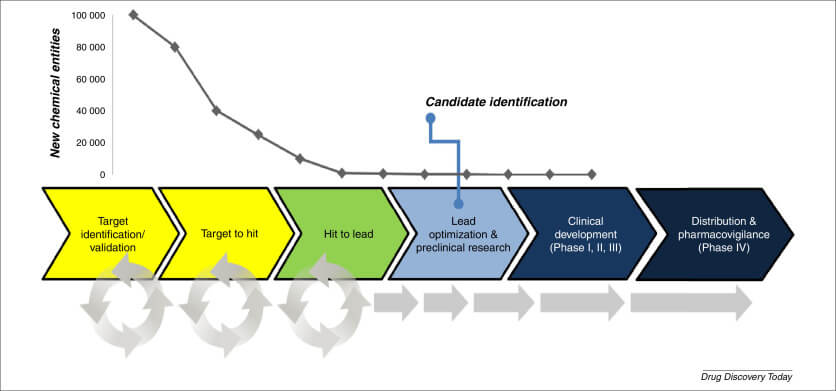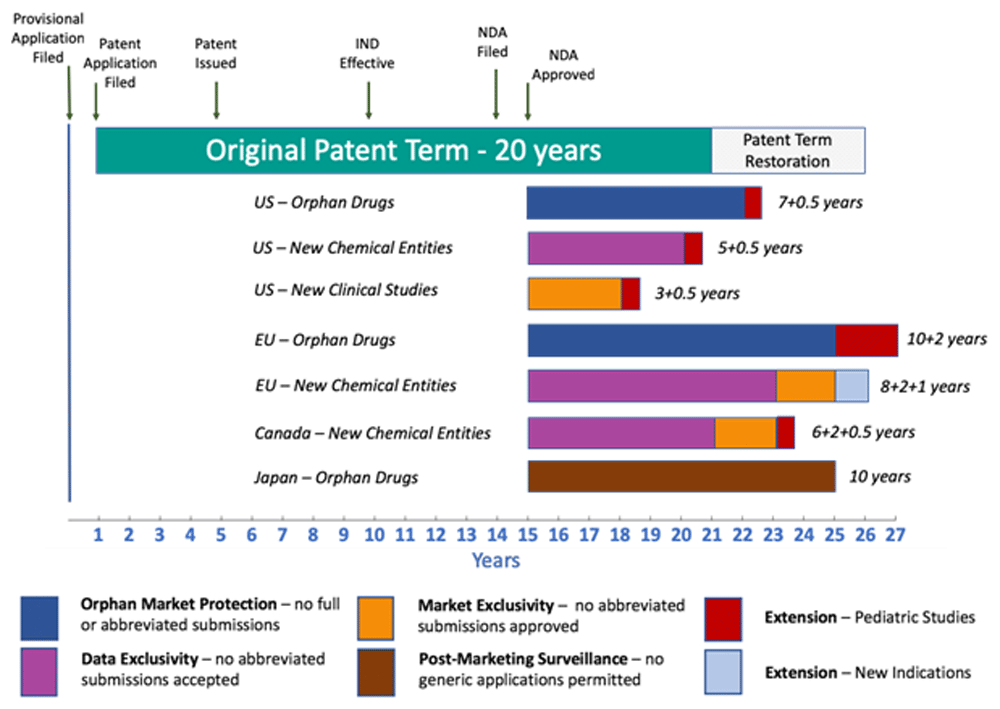The digital revolution is reshaping every aspect of industry. From patient care to drug discovery, technology is driving unprecedented changes, and pharmaceutical companies are at the forefront of this transformation. As we delve into the intricate world of digital healthcare, we’ll explore how these companies can leverage their expertise, resources, and innovation to lead the charge in revolutionizing healthcare as we know it.
The Digital Revolution in Healthcare: An Overview
The digital revolution in healthcare is not just a buzzword; it’s a paradigm shift that’s fundamentally changing how we approach health and wellness. From wearable devices that track our vital signs to artificial intelligence that can predict disease outbreaks, technology is opening up new frontiers in healthcare delivery and management.
What Does the Digital Revolution Mean for Healthcare?
At its core, the digital revolution in healthcare is about harnessing the power of technology to improve patient outcomes, streamline processes, and make healthcare more accessible and personalized. It encompasses a wide range of innovations, including:
- Telemedicine and remote patient monitoring
- Electronic health records (EHRs)
- Artificial intelligence and machine learning in diagnostics
- Wearable health tech and Internet of Medical Things (IoMT)
- Big data analytics for population health management
- Personalized medicine and genomics
The Role of Pharmaceutical Companies in This Revolution
Pharmaceutical companies are uniquely positioned to drive this digital transformation. With their vast resources, scientific expertise, and established presence in the healthcare ecosystem, they have the potential to be key players in shaping the future of digital health.
“Pharmaceutical companies are no longer just drug makers. They are evolving into healthcare solution providers, leveraging digital technologies to improve patient outcomes and transform the entire healthcare value chain.” – Dr. Jane Smith, Chief Digital Officer at PharmaTech Innovations
Embracing Digital Technologies in Drug Discovery and Development
One of the most significant areas where pharmaceutical companies can make an impact is in the realm of drug discovery and development. By leveraging cutting-edge technologies, they can accelerate the process of bringing new treatments to market.
Artificial Intelligence in Drug Discovery
Artificial Intelligence (AI) is revolutionizing the way pharmaceutical companies approach drug discovery. By analyzing vast amounts of data, AI algorithms can identify potential drug candidates much faster than traditional methods.
Machine Learning for Target Identification
Machine learning algorithms can sift through genomic data, scientific literature, and clinical trial results to identify promising drug targets. This not only speeds up the initial stages of drug discovery but also helps researchers focus on the most promising avenues of investigation.
Predictive Modeling for Drug Efficacy and Safety
AI-powered predictive models can simulate how a drug might interact with the human body, helping researchers anticipate potential side effects and efficacy issues before clinical trials begin. This can significantly reduce the time and cost associated with drug development.
According to a report by Deloitte, AI-powered drug discovery could potentially save pharmaceutical companies up to $100 billion annually by 2025.
Blockchain in Clinical Trials
Blockchain technology has the potential to revolutionize clinical trials by enhancing data integrity, improving patient recruitment, and streamlining the entire process.
Enhancing Data Integrity and Transparency
By using blockchain to record and store clinical trial data, pharmaceutical companies can ensure the immutability and transparency of their research. This not only builds trust with regulators and the public but also helps prevent fraud and data manipulation.
Streamlining Patient Recruitment and Consent
Blockchain can create a secure, decentralized database of potential clinical trial participants, making it easier for researchers to find suitable candidates. Smart contracts can also be used to manage patient consent, ensuring that all ethical and legal requirements are met.
Leveraging Big Data for Personalized Medicine
The era of one-size-fits-all medicine is coming to an end, and pharmaceutical companies are at the forefront of this shift towards personalized treatments.
Genomics and Targeted Therapies
By analyzing a patient’s genetic makeup, pharmaceutical companies can develop targeted therapies that are more effective and have fewer side effects. This approach, known as pharmacogenomics, is already showing promising results in oncology and rare diseases.
Real-World Evidence and Outcomes-Based Medicine
Big data analytics allows pharmaceutical companies to gather and analyze real-world evidence on drug efficacy and safety. This information can be used to refine treatment protocols, identify new indications for existing drugs, and develop more effective therapies.
“Real-world evidence is transforming how we develop and evaluate drugs. It’s no longer just about clinical trials; it’s about understanding how our treatments perform in the real world, with real patients.” – Dr. Michael Johnson, Head of Real-World Evidence at Global Pharma Solutions
Digital Therapeutics: The Next Frontier
Digital therapeutics represent a new category of medical interventions that use software to treat, manage, or prevent diseases. Pharmaceutical companies are increasingly investing in this space, recognizing its potential to complement traditional drug therapies.
Developing Software as a Medical Device (SaMD)
Software as a Medical Device (SaMD) refers to software intended to be used for medical purposes without being part of a hardware medical device. Pharmaceutical companies are developing SaMD products that can help patients manage chronic conditions, improve medication adherence, and even deliver cognitive behavioral therapy.
Combining Digital Therapeutics with Traditional Treatments
By combining digital therapeutics with traditional drug treatments, pharmaceutical companies can create comprehensive care solutions that address multiple aspects of a patient’s health. For example, a diabetes management app could be paired with insulin therapy to help patients better control their blood sugar levels.
Enhancing Patient Engagement and Support
Digital technologies offer pharmaceutical companies new ways to engage with patients and provide support throughout their healthcare journey.
Mobile Health Apps and Patient Portals
Mobile health apps and patient portals can provide patients with easy access to their health information, medication reminders, and educational resources. These tools can help improve medication adherence and empower patients to take a more active role in managing their health.
Virtual Reality for Patient Education and Therapy
Virtual reality (VR) technology is being used to create immersive educational experiences for patients, helping them better understand their conditions and treatment options. VR is also showing promise as a therapeutic tool, particularly in pain management and mental health treatment.
Improving Supply Chain Management and Drug Safety
Digital technologies can help pharmaceutical companies enhance their supply chain management and ensure drug safety throughout the product lifecycle.
IoT and Smart Packaging for Supply Chain Visibility
Internet of Things (IoT) sensors and smart packaging solutions can provide real-time tracking of pharmaceutical products, ensuring their integrity and authenticity from manufacture to delivery.
AI-Powered Pharmacovigilance
Artificial intelligence can analyze vast amounts of data from various sources to identify potential safety issues with drugs more quickly and accurately than traditional methods. This can help pharmaceutical companies respond to emerging safety concerns more rapidly and effectively.
Collaborating with Tech Companies and Startups
To fully leverage the potential of digital health, pharmaceutical companies need to look beyond their traditional boundaries and collaborate with tech companies and innovative startups.
Strategic Partnerships and Acquisitions
Many pharmaceutical companies are forming strategic partnerships with tech giants or acquiring digital health startups to gain access to cutting-edge technologies and expertise.
Open Innovation and Hackathons
Open innovation initiatives and hackathons can help pharmaceutical companies tap into the creativity and technical skills of the broader tech community, fostering new ideas and solutions.
Addressing Data Privacy and Security Concerns
As pharmaceutical companies embrace digital technologies, they must also address the critical issues of data privacy and security.
Implementing Robust Cybersecurity Measures
With the increasing digitization of health data, pharmaceutical companies need to invest in state-of-the-art cybersecurity measures to protect sensitive patient information and intellectual property.
Ensuring Compliance with Data Protection Regulations
Pharmaceutical companies must navigate complex data protection regulations such as GDPR and HIPAA to ensure they are handling patient data ethically and legally.
Overcoming Regulatory Challenges
The digital revolution in healthcare presents new regulatory challenges that pharmaceutical companies must navigate.
Working with Regulators to Develop New Frameworks
Pharmaceutical companies need to work closely with regulatory bodies to develop new frameworks that can keep pace with rapidly evolving digital health technologies.
Demonstrating the Safety and Efficacy of Digital Health Solutions
As pharmaceutical companies develop more digital health solutions, they will need to establish new methods for demonstrating their safety and efficacy to regulators and healthcare providers.
Investing in Digital Skills and Talent
To succeed in the digital age, pharmaceutical companies need to invest in developing their digital capabilities and attracting top tech talent.
Building In-House Digital Expertise
Pharmaceutical companies are creating dedicated digital health units and investing in training programs to build their in-house digital expertise.
Attracting Tech Talent to the Pharma Industry
To compete with tech companies for top talent, pharmaceutical companies are reimagining their work cultures and offering exciting opportunities to work on cutting-edge digital health projects.
The Future of Pharmaceutical Companies in Digital Health
As we look to the future, it’s clear that pharmaceutical companies will play an increasingly important role in shaping the digital health landscape.
From Drug Makers to Health Solution Providers
The digital revolution is pushing pharmaceutical companies to evolve from traditional drug manufacturers into comprehensive health solution providers, offering a range of digital tools and services alongside their medications.
Driving Innovation in Emerging Technologies
Pharmaceutical companies are well-positioned to drive innovation in emerging technologies such as nanotechnology, 3D-printed medications, and gene editing, which could revolutionize healthcare in the coming decades.
Key Takeaways
- Pharmaceutical companies are uniquely positioned to lead the digital revolution in healthcare, leveraging their resources and expertise to drive innovation.
- AI and machine learning are transforming drug discovery and development, potentially saving billions of dollars and years of research time.
- Big data analytics and genomics are enabling the development of personalized medicine, tailoring treatments to individual patients.
- Digital therapeutics represent a new frontier for pharmaceutical companies, combining software with traditional drug therapies.
- Enhancing patient engagement through mobile apps, VR, and other digital tools is becoming a key focus for pharmaceutical companies.
- Collaboration with tech companies and startups is essential for pharmaceutical companies to stay at the forefront of digital health innovation.
- Addressing data privacy, security, and regulatory challenges is crucial for pharmaceutical companies as they embrace digital technologies.
- Investing in digital skills and talent is necessary for pharmaceutical companies to succeed in the digital health landscape.
- The future of pharmaceutical companies lies in evolving from drug makers to comprehensive health solution providers.
- By embracing the digital revolution, pharmaceutical companies can play a pivotal role in improving patient outcomes, reducing healthcare costs, and transforming the entire healthcare ecosystem.
FAQs
- How are pharmaceutical companies using AI in drug discovery?
Pharmaceutical companies are using AI to analyze vast amounts of data to identify potential drug candidates, predict drug efficacy and safety, and optimize clinical trial designs. This can significantly speed up the drug discovery process and reduce costs. - What are digital therapeutics, and why are they important?
Digital therapeutics are evidence-based therapeutic interventions driven by high-quality software programs to prevent, manage, or treat a medical disorder or disease. They’re important because they can complement traditional drug therapies, improve patient outcomes, and provide new treatment options for conditions that are difficult to address with conventional methods. - How can blockchain technology benefit the pharmaceutical industry?
Blockchain can enhance transparency and security in the pharmaceutical supply chain, improve the integrity of clinical trial data, streamline patient recruitment for studies, and help combat counterfeit drugs. - What role do pharmaceutical companies play in developing personalized medicine?
Pharmaceutical companies are leveraging genomics and big data analytics to develop targeted therapies based on a patient’s genetic profile. They’re also using real-world evidence to refine treatment protocols and identify new uses for existing drugs. - How are pharmaceutical companies addressing data privacy concerns in digital health?
Pharmaceutical companies are implementing robust cybersecurity measures, ensuring compliance with data protection regulations like GDPR and HIPAA, and working with regulators to develop new frameworks for handling digital health data ethically and securely.
Sources Cited:
- Deloitte. “Artificial Intelligence for Drug Discovery Could Potentially Save Pharmaceutical Companies up to $100 Billion Annually by 2025.”























